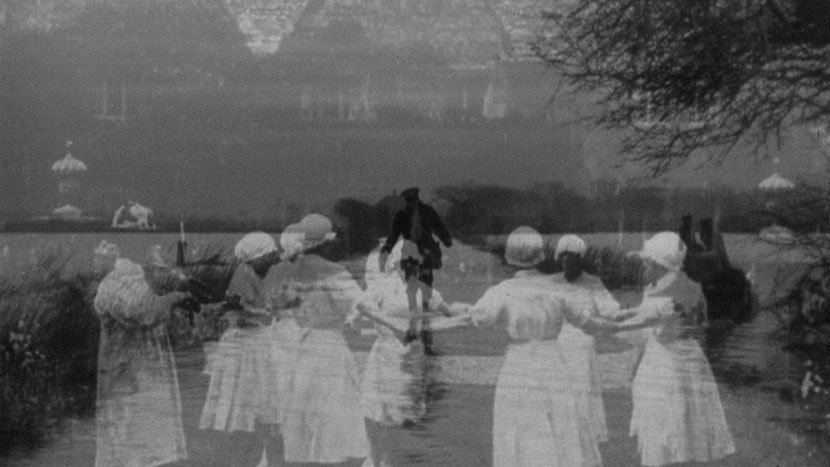In the UK music and culture magazine The Quietus, Tim Cooke reflects on the 2017 film Arcadia by Paul Wright, which uses archival footage to paint a poetic, haunting portrait of Britain’s rural landscape and people. The film became the subject of controversy earlier this year when Paul Kingsnorth, a British nature writer, wrote an essay in response to the film that many criticized as an example of “nationalist environmentalism.” But Cook argues that the film itself embodies the exact opposite view of nature. It complicates and undermines any simplistic, idealized notion of “the rural” and paves the way for a more inclusive view of the environment and our place in it. Here’s an excerpt:
During precarious political times such as ours, it’s more important than ever to be vigilant in how we construct and interpret the various media available to us. Being aware of the exclusionary potential of reactionary traits in new nature writing, and thinking hard about how we engage with representations of the British landscape in film and literature, should help steer us towards a more progressive artistic engagement with place. Perhaps, then, Paul Wright’s Arcadia, an overtly self-reflexive documentary on the subject of countryside and national identity, will enrich the debate.
The film, built entirely from archive footage, is almost an ode to the subjectivity touched on above. It opens with a nightmarish, hallucinatory descent into the soil, from which emerges a stereotypical, sepia vision of England: idyllic villages, sheep-strewn fields, thatched cottages, dogs loping alongside smartly-dressed farmers, and country folk milling about on horseback - all accompanied by a gorgeous, rousing score. “This is the Britain we have… inherited,” we are told, “a land of incomparable beauty.” It evokes in the viewer a false sense of nostalgia for an unreal time; from a distance, it feels like satire.
Image: A still from Paul Wright’s film Arcadia (2017). Via Wright’s Twitter feed.
